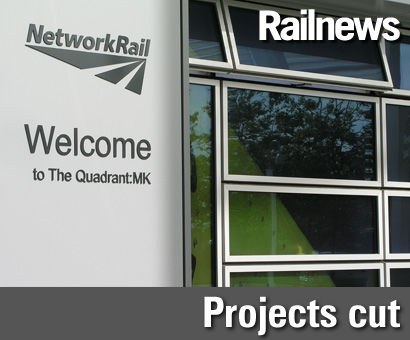THE railway industry has been reacting to the decision by the government to tighten its control of Network Rail after the costs of major enhancement projects ballooned.
Transport secretary Patrick McLoughlin has ordered changes to top management, placed key projects on hold indefinitely and said that there will be no bonuses for board level directors this year. The Public Members, who were intended to represent shareholders, will no longer be required.
There will be an independent review of the way Network Rail plans and costs major enhancement projects, to be led by economist Dame Colette Bowe.
The transport commissioner for London Sir Peter Hendy is to replace Richard Parry-Jones as chairman, while former Eurostar chief and Department for Transport franchising adviser Richard Brown is joining the Network Rail board as a special director -- effectively making him the man from the ministry.
Electrification has been cut back in a bid to bring Network Rail's budgets under control. The scheme to electrify the Midland Main Line between Bedford, Sheffield and Nottingham has been 'paused', following the decision earlier this month to rethink the Northern Transpennine electrification between Manchester and York. Both schemes are now postponed indefinitely.
Transport secretary Patrick McLoughlin told MPs: "Important aspects of Network Rail's investment programme are costing more and taking longer. Electrification is difficult. The UK supply chain for the complex signalling works needs to be stronger. Construction rates have been slow. It has taken longer to obtain planning consents from some local authorities than expected. But that is no excuse. All of these problems could and should have been foreseen by Network Rail."
Network Rail, which became a government body in the public sector last September, agreed that its pace of progress had been 'behind expectations', conceding that 'more detailed project costs have been higher than assumed at the earliest stages of definition. As a result, the total enhancement programme cost now exceeds the available five-year budget'.
Chief executive Mark Carne said: “During my first year in the job I have looked closely at every aspect of our business and it has become clear that Network Rail signed up to highly ambitious five-year targets set by the regulator. Based on historic improvements from a low base, we were overly optimistic about the capacity of our company and our supplier base to step up several gears in order to achieve the plan, especially given the complexities of a network that is at full capacity much of the time."
Network Rail has also been under fire for repeated disruption at London Bridge over the past six months so, as work continues on rebuilding the station for the Thameslink Programme.
The reassessment of its spending and priority projects has caused widespread disappointment and concern.
Louise Ellman, who is continuing to chair the new House of Commons transport committee, said: "The Secretary of State’s statement on Network Rail was disappointing. It is clear that some of the important schemes ministers have previously announced will not happen or will be delayed. But it is unclear what the practical implications of ‘pausing’ electrification will be for the Midland main line and the Transpennine route between Leeds and Manchester.
"The Transport Committee I chaired last Parliament questioned whether the planned rail investment programme was deliverable. That Committee warned the Department in January that there were problems with escalating costs and poor planning and management. The costs of the Great Western Main Line electrification are much higher than Network Rail and the ORR forecast. This should have been foreseen."
She also indicated that her Committee will be staging its own investigation soon, once its members have been appointed.
Philippa Oldham, head of transport at the Institution of Mechanical Engineers, said: “An urgent review is needed to get a better understanding as to why costs have escalated and timings missed. Government needs to press ahead not just with these upgrades, but with delivering new projects such as HS2. We need to remove the bottlenecks in our transport infrastructure, to improve the efficiency and increase capacity, which will help to bridge the North South divide."


